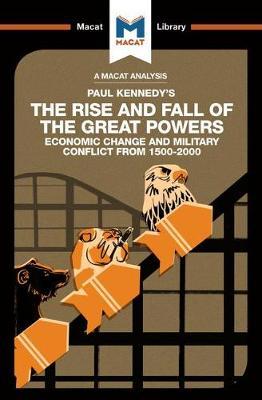Rise and Fall of the Great Powers

Rise and Fall of the Great Powers
From a strictly academic point of view, the virtues of Kennedy's work lie elsewhere, and specifically in his flair for asking the sort of productive questions that characterize a great problem-solver. Kennedy's work is an example of an increasingly rare genre - a work of comparative history that transcends the narrow confines of state- and era-specific studies to identify the common factors that underpin the successes and failures of highly disparate states.
Kennedy's prime contribution is the now-famous concept of `imperial overstretch,' the idea that empires fall largely because the military commitments they acquire during the period of their rise ultimately become too much to sustain once they lose the economic competitive edge that had projected them to dominance in the first place. Earlier historians may have glimpsed this central truth, and even applied it in studies of specific polities, but it took a problem-solver of Kennedy's ability to extend the analysis convincingly across half a millennium.
PRP: 55.38 Lei
Acesta este Prețul Recomandat de Producător. Prețul de vânzare al produsului este afișat mai jos.
44.30Lei
44.30Lei
55.38 LeiLivrare in 2-4 saptamani
Descrierea produsului
From a strictly academic point of view, the virtues of Kennedy's work lie elsewhere, and specifically in his flair for asking the sort of productive questions that characterize a great problem-solver. Kennedy's work is an example of an increasingly rare genre - a work of comparative history that transcends the narrow confines of state- and era-specific studies to identify the common factors that underpin the successes and failures of highly disparate states.
Kennedy's prime contribution is the now-famous concept of `imperial overstretch,' the idea that empires fall largely because the military commitments they acquire during the period of their rise ultimately become too much to sustain once they lose the economic competitive edge that had projected them to dominance in the first place. Earlier historians may have glimpsed this central truth, and even applied it in studies of specific polities, but it took a problem-solver of Kennedy's ability to extend the analysis convincingly across half a millennium.
Detaliile produsului










